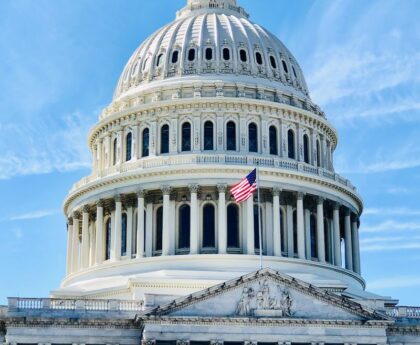To Thread or not to Thread
By
Twitter has long been an essential tool for politicians and their staff, providing a direct line of communication with the public and the media. However, recent changes and controversies on the platform have raised questions about its utility and the need for alternatives. One such alternative is Threads, a new app launched by Meta, which has garnered attention from White House staffers and reporters alike.
Twitter’s Impact on the West Wing
Since the White House launched its Twitter account in 2009 under President Barack Obama, the platform has served as a crucial outreach tool for the administration. It has allowed presidents to communicate directly with the public and has given staff members a way to keep tabs on news and engage with reporters. During the Trump administration, Twitter took on an even more significant role, with President Donald Trump using it to share his unfiltered thoughts and shape public discourse on a daily basis.
However, Twitter’s recent meltdown, marked by limits on daily tweet consumption and the launch of a new version of TweetDeck, has made it more difficult for White House staffers to do their jobs effectively. The platform’s changes have affected communication and information-sharing within the West Wing, leading some to explore alternatives like Threads.
Threads as an Alternative
Meta’s Threads app has emerged as a potential competitor to Twitter, attracting White House staffers and reporters who are looking for a new platform to stay connected and share information. Several Biden administration officials, including Neera Tanden and Andrew Bates, have joined Threads in recent days, signaling a growing interest in the platform.
However, Threads still has some limitations compared to Twitter. It lacks features like a reverse chronological feed, the option to see posts only from people you follow, and list functions to sort feeds topically. Additionally, there is currently no alternative to TweetDeck. These shortcomings have raised questions about whether Threads can replicate the water-cooler feel of classical Twitter and whether it is worth the White House’s investment of time and resources to establish an official presence on the platform.
The White House’s Considerations
The White House faces a unique set of considerations when deciding which platforms to use for official communications. While other organizations may prioritize reaching a wide audience, the White House’s choice of platform is guaranteed to attract attention no matter what. Therefore, any platform the White House adopts needs to have a critical mass of users before it can be considered a viable option.
Additionally, creating new official social media accounts and building a following comparable to the @POTUS and @WhiteHouse handles on Twitter requires time, resources, and careful management. The White House would also need to ensure compliance with the Presidential Records Act and dedicate staffers to manage the account and produce content.
The Future of Twitter and Threads
The current debate over Threads and Twitter’s future raises philosophical questions about the role of social media in shaping public discourse and political communication. Twitter’s impact on politics has been both revolutionary and controversial, allowing politicians to bypass traditional gatekeepers and reach a global audience instantaneously. However, it has also fostered a culture of outrage, misinformation, and divisiveness.
As alternatives like Threads emerge, it is important to reflect on the power of social media platforms and consider the ethical and societal implications of their design and use. How these platforms shape public discourse and influence political decision-making is a vital topic that warrants further exploration and examination.
Conclusion
The rise of alternative platforms like Threads signals a potential shift in the landscape of political communication. While Twitter has been an instrumental tool for politicians and their staff, it is not without its flaws and controversies. As the White House considers its options, it must carefully weigh the benefits and drawbacks of each platform, keeping in mind the unique challenges and responsibilities that come with official communication channels. The future of political communication in the digital age is uncertain, but it is clear that the choices made today will shape the discourse and engagement of tomorrow.

<< photo by Zulmaury Saavedra >>
The image is for illustrative purposes only and does not depict the actual situation.
You might want to read !
- Josh Allen and Hailee Steinfeld: A Blossoming Romance Takes Center Stage
- The Importance of Second Opinions in Medical Diagnoses
- A Rift in the Right: Exploring the Feud Between Marjorie Taylor Greene and Lauren Boebert
- “The Rise of Jabari Smith Jr.: A Game-Changer in the NBA 2K24 Summer League”
- “The Lincoln Lawyer: A Clever and Classic TV Update”
- FDA Expands Access to Alzheimer’s Drug Leqembi: A Step towards Better Treatment for Patients
- “Unleashing the Power: Exploring Diablo 4 Season 1’s New Super Gems”
- West Covina residents concerned about the dangers of 4th of July fireworks near residential areas
Title: “Balancing Tradition and Safety: West Covina Residents Fear Potential Hazards of 4th of July Fireworks”
- Justice for Nacer: Holding Police Accountable in France’s Shooting of Teenager




